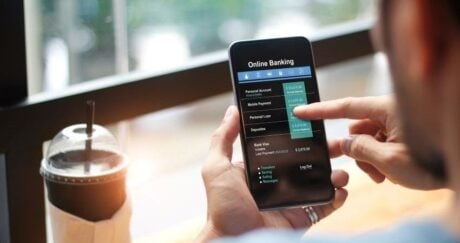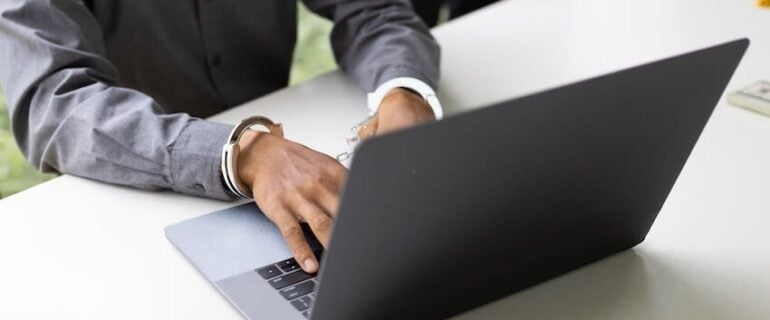Many or all of the products and brands we promote and feature including our ‘Partner Spotlights’ are from our partners who compensate us. However, this does not influence our editorial opinion found in articles, reviews and our ‘Best’ tables. Our opinion is our own. Read more on our methodology here.
Leaving prison is a moment to celebrate for many people, but the process of getting back on your feet can be gruelling. Without the right structure in place, life on the outside can be incredibly challenging.
Finding employment and securing accommodation are just two of the common difficulties many prison leavers face. The majority of recently released prisoners are not in employment six weeks after leaving prison. What is more, according to the government’s Statutory Homelessness Annual Report 2020-21, 5,610 households were homeless or facing homelessness upon leaving prison in 2019-20, up 61.7% on the previous year.
What is more, according to the Ministry of Justice, 14% of prisoners who left custody between April 2020 and March 2021 became homeless once they left prison.
So what’s the solution? While there is no simple answer, achieving financial stability as soon as possible is crucial. One of the first steps prisoners can take to manage their finances is to open a bank account.
Why do I need a bank account?
Having a bank account can help you readjust to life outside of prison, allowing you to manage your own finances, secure accommodation and find employment.
A bank account is a safe and convenient way to:
- get paid
- receive benefits or Universal Credit
- rent accommodation
- pay bills by direct debit
- buy products in store and online
- prove your identity for certain official applications
Having a bank account can mean paying less for your bills, as these are often offered at lower rates when paid by direct debit.
Steps for getting a bank account after leaving prison
When planning to open a bank account after leaving prison, there are a number of things you can do to give yourself the best chance of being accepted.
Unlock, a charity that helps those with criminal records, makes the following suggestions:
- Ask your resettlement staff to provide you with a list of local banks and highlight any that might have an existing relationship with your prison.
- Write to these banks, stating that you are interested in opening a bank account upon your release.
- Explain that you need a bank account in order to receive wages or benefits when released.
- Tell the banks about any proof of ID, address or other documents you can provide.
- Visit your bank as soon as possible after your release and complete your application directly with them.
Don’t be disheartened if you receive a negative reply from one bank. Attitudes can vary drastically between each branch. Send out a letter to as many banks as possible to increase your chances.
If you do not have a fixed address after leaving prison, you may still be able to open an account at certain banks. This depends on a charity referral but could be an option for those who would otherwise have no access to banking.
What kind of bank account can I get?
When applying for an account, a basic bank account is what you should typically be looking for. They are designed to provide the most essential features and can be useful if you have a low credit score, or none at all, and need a way to receive benefits or wages and pay bills.
You cannot have an overdraft or a chequebook with a basic bank account, but opening one is a great first step to building or repairing your credit score. This will help you towards getting a regular current account in the future, which does provide these facilities.
Why is it hard to get a bank account after prison?
While there are no laws that prevent banks from opening an account for current prisoners or those who have already left, many might still refuse. This can be for a variety of reasons, including the fact that banks typically base their lending and customer policies on financial risk evaluations.
This means that if you are unemployed, have a criminal record, a poor or non-existent credit history, and lack a residential address, you may naturally fall short of a bank’s eligibility criteria. If you lack proof of ID or address (if you don’t have a passport, for example), you may also find it difficult.
Staff may not be trained to deal with applications from people in prison or those who have recently been released, so individual branch attitudes to criminal records may, unfortunately, be against you.
The pandemic has also had a profound impact on resettlement schemes and access to banking for those leaving prison.
Angela Cairns, CEO of Unlock, commented: “Since the Coronavirus pandemic started, we’ve seen worryingly reduced access to resettlement support, and fewer people leaving prison with a bank account. This is making it harder for people to get a job, access housing and provide for their families.”
Can I open a bank account while I’m in prison?
Technically, there is no reason why you cannot open an account while you are serving a prison sentence. And opening one is often recommended by charities that support ex-offenders. However, your success may depend on the prison you are in.
What are the rules for opening a bank account in prison?
UK prison service instructions state that those currently in prison should be allowed and supported to open a bank account, noting that opening an account is ‘advantageous’ for prisoners and can help prepare them for life after their release.
Opening an account with support from the prison before leaving means that banks can accept proof of ID and address from prison records, rather than needing to see documents such as passports and utility bills, which some prisoners do not have.
Through the government’s Prisoner Banking Scheme/Prisoner Banking Programme, inmates can open a bank account with one of nine major banks or building societies up to six months before release.
The following banks and building societies are included in the scheme, though which bank you can use depends on the prison:
- Santander
- Barclays
- Halifax
- Lloyds
- Co-op
- RBS
- NatWest
- HSBC
- Nationwide
Alternatives to bank accounts for prison leavers
If you are finding it difficult to open a bank account after you’ve left prison, you might want to consider using one of these alternatives:
- a credit union current account
- a prepaid card
- the Payment Exception Service
A credit union current account
You may be able to find a local credit union that will let you open an account with them.
A credit union current account is similar to a current account with a bank. Benefits and wages can be paid in directly, and the accounts can offer direct debit and standing order facilities.
However, these accounts normally come with a small weekly or monthly charge, so check the terms and conditions before committing.
Usually you will need to live or work in the area where the credit union is based, or have something else in common with its members.
Prepaid card accounts
A prepaid card offers most basic money management facilities. Wages and benefits can both be paid into this type of account. Having an account number and sort code also opens up the option of paying for services by direct debit.
There is usually a fee for these accounts, so you should check this with the provider before committing to one.
You may find that you will not be able to get a chequebook with this sort of account, nor will your money be protected by the Financial Services Compensation Scheme (FSCS), as these prepaid cards and accounts can be classified as e-money.. However, as a result of this your money should still be safeguarded under the Financial Conduct Authority’s e-money regulations.
If you cannot open a basic bank account or a credit union current account, then using a prepaid card account might be an option for you.
The Payment Exception Service
If you are eligible for benefits or pension payments when you leave prison, you will normally need an account for them to be paid into. However, if you cannot open a current account, the Payment Exception Service will allow you to claim this money without one.
This service is not widely available, but it is an option if you are unable to claim your benefits in other ways. You will be sent vouchers to redeem at the Post Office or at a PayPoint location.
You will not be able to pay for goods and services by card or online using the Payment Exception Service. This makes it a last-resort option, limiting you to cash-only transactions.
You can compare the facilities of a bank account, a credit union account, a prepaid card and the Payment Exception Service below:
| Basic Bank Account | Credit Union Current Account | Prepaid Card Account | Payment Exception Service | |
|---|---|---|---|---|
| Deposit Benefits | Yes | Yes | Yes | No |
| Deposit Wages | Yes | Yes | Yes | No |
| Direct Debit | Yes | Yes | Yes | No |
| Standing Orders | Yes | Yes | Depends on provider | No |
| Cheque Facilities | Yes | Yes | Can pay in cheques | No |
Think positively
It is important to understand your value and rights once you leave prison. Upon release, you will gain full employment rights and are entitled to the same services as everyone else, including opening a bank account and claiming benefits.
Setting up your bank account is just one piece of the puzzle when it comes to getting your life back on track, but you should not underestimate its importance. It is a basic entitlement that you have, as much as any other member of society.
When it comes to approaching banks, remember that you are a potential customer for them. And once you move on to seeking employment, you will be a valuable resource for many businesses.
For example, Timpson, the shoe repair business, is an advocate for hiring ex-offenders, with around 10% of their workforce falling into this category. COOK, a frozen food company based in Kent, has a programme helping those who have been in prison or have experienced homelessness back into work. These are just two examples of businesses that recognise the contributions you can make once you have left prison.
Useful resources
There are a number of organisations who provide useful information and advice about securing financial stability after prison. Whether you have time left on your sentence or you have recently been released, the following charities may be able to offer you support:
Don’t hesitate to ask for support. Charities such as Citizens Advice can offer you some advice or guidance. You may also have a probation officer or access to a resettlement scheme, so make sure you draw upon their knowledge – it is what they’re there for.
Image source: Getty Images
Dive even deeper

How to Open an International Student Bank Account in the UK
If you are coming to the UK to study, life will be much easier if you have a UK bank account. In most cases, an international student bank account will end up being a standard current or savings account. Find out how to apply, and what you need to look out for.

Debit Cards for Kids: Everything You Need to Know
A debit card for kids, in tandem with a children’s current account, can help build trust and responsibility around money while preparing your child for the future. Discover everything you need to know about what they are and how to apply for one below.

No branch? No problem: Brits are ready to trust online banks
Our NerdWallet survey looks at how attitudes have changed online banking, including customer concerns with online banking, what the future of online banking might look like and tips for choosing the right bank account for your needs.







